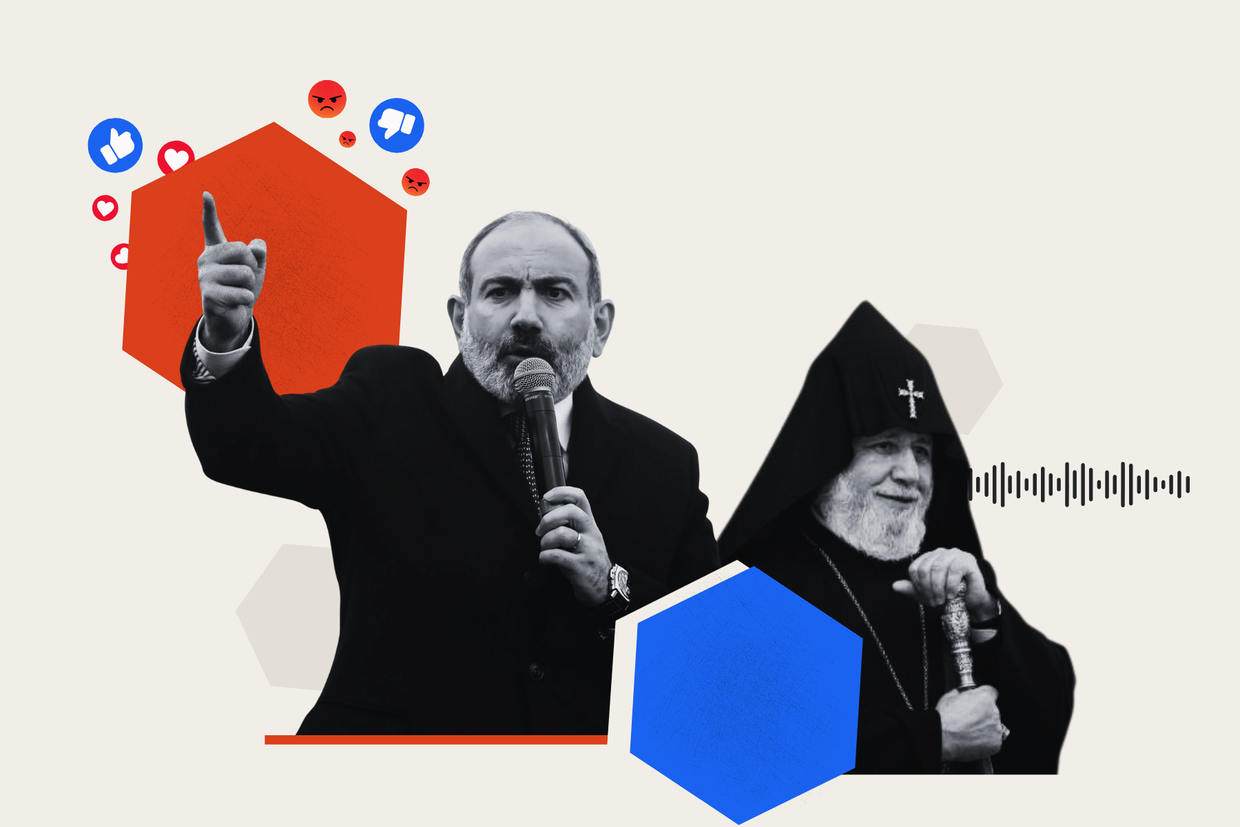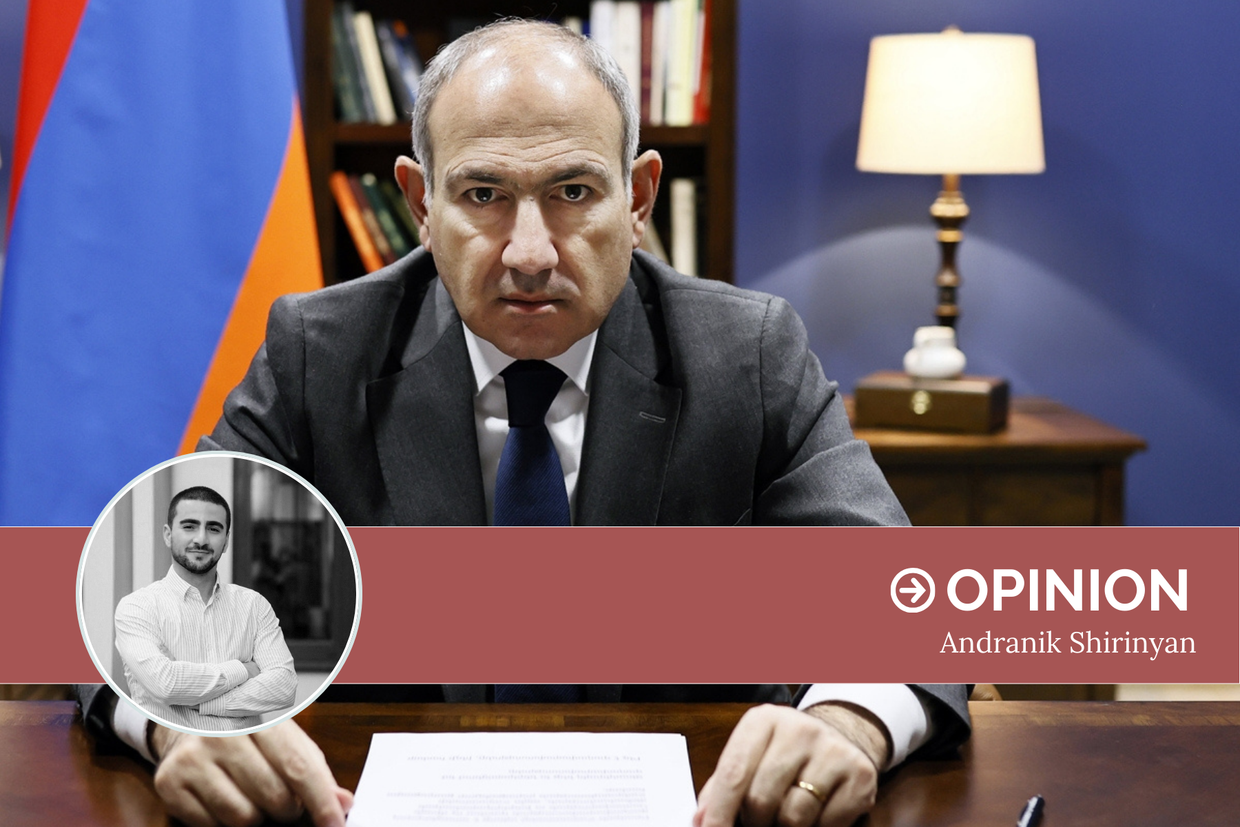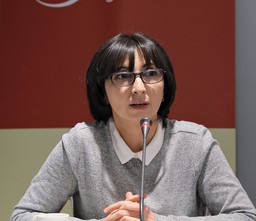Opinion | Kocharyan’s sexist attack on Pashinyan reflects the misogyny that permeates our politics
When Kocharyan quipped that ‘fortunately’ Pashinyan was not born a girl, even the women who came to his defence relied on sexist framing.

In political discourse, sexism often serves as a strategy to humiliate opponents, while the image of a woman becomes a tool of political insult. The most recent and blatantly misogynistic remark came from former president Robert Kocharyan during a press conference, when he stated:
‘Let’s give [Nagorno-Karabakh] to Aliyev, whatever Erdoğan wants — give that too. Tomorrow, Macron will ask for something, then Trump. This man [Prime Minister Nikol Pashinyan] is acting like Mother Teresa at Armenia’s expense. Fortunately, he wasn’t born a girl — it would have been a national disgrace’.
For Kocharyan, and perhaps for some segments of the public, this was intended as ‘criticism’ of Pashinyan’s allegedly conciliatory policies. Yet beneath the surface, the comment exposes one of the ugliest layers of patriarchal thinking: the idea that calling a man a woman is the ultimate insult.
In Kocharyan’s rhetoric, being a woman is the same as being a ‘national disgrace’ — a symbol of weakness, shame, and unfitness for state leadership. This reveals a worldview in which femininity is synonymous with inferiority and incompatibility with public or political life — a mindset that has historically excluded women from decision-making spaces.
However, this is far from an isolated incident. Armenian politics has repeatedly seen women turned into targets and passive sexual objects in men’s verbal battles. A striking example came months earlier from Pashinyan himself, who, in a social media post directed at a cleric, wrote: ‘Srbazan, keep banging your uncle’s wife. What’s your problem with me?’.
In this statement, Pashinyan not only attacked the cleric but also exposed identifiable details about his alleged female partner, reducing her to a passive sexual object for political ridicule.

Sexually demeaning and misogynistic language — regardless of political motive — uttered by men at the highest levels of power perpetuates gender stereotypes and normalises disrespect toward women.
Notably, even women politicians who attempt to counter such rhetoric often fail to recognise its deeper gendered dimensions and may themselves resort to sexist framing.
For instance, ruling Civil Contract MP Hasmik Hakobyan responded to Kocharyan’s remarks by writing: ‘I wonder what kind of women surround Robert Kocharyan, including in his faction, that he only perceives women as subjects [to be given away]’.
Such reactions demonstrate that even women in politics can internalise patriarchal logic — holding women responsible for men’s behaviour, lacking solidarity, and failing to challenge the underlying misogyny of political discourse.
This dynamic reveals that in Armenia’s political sphere, sexism continues to be viewed as an acceptable — even effective — form of political speech, serving to preserve male dominance in power structures. Sexist language is not treated as a systemic issue reproducing gender inequality, but rather as an individual insult.
Yet this is not mere crude humor or verbal aggression — it is a form of cultural violence. By normalising the degradation of women through language and symbols, political speech legitimises social inequality and reinforces the patriarchal notion that power belongs to men, while women remain secondary, passive, or instrumental actors.

Are there mechanisms to resist this pervasive discourse? Very few. Small groups of activists and human rights defenders attempt to challenge the misogynistic culture of politics, yet sexism remains dominant in public communication.
Armenian society must develop a clear and consistent response to sexist and misogynistic statements made by politicians to de-normalise such discourse and exclude it from the public sphere. In particular, it is essential to cultivate a culture of public rejection — expressed through social media, the press, and civil society platforms. Every such statement should be subject to criticism and public accountability, regardless of whether it comes from representatives of the government or the opposition. Non-governmental organisations, the media, and academic institutions should play a key role in raising public awareness about the dangers of sexism, emphasising that such rhetoric not only offends women but also undermines democratic values and the healthy development of political culture. Only through consistent public rejection and education can a social environment be formed where sexism is no longer perceived as ‘humour’ or ‘political strategy’, but as unacceptable behaviour that contradicts the principles of human rights and human dignity.
As long as sexist and misogynistic language goes uncondemned at a societal level, it becomes normalised, reinforcing patriarchal systems of governance.










